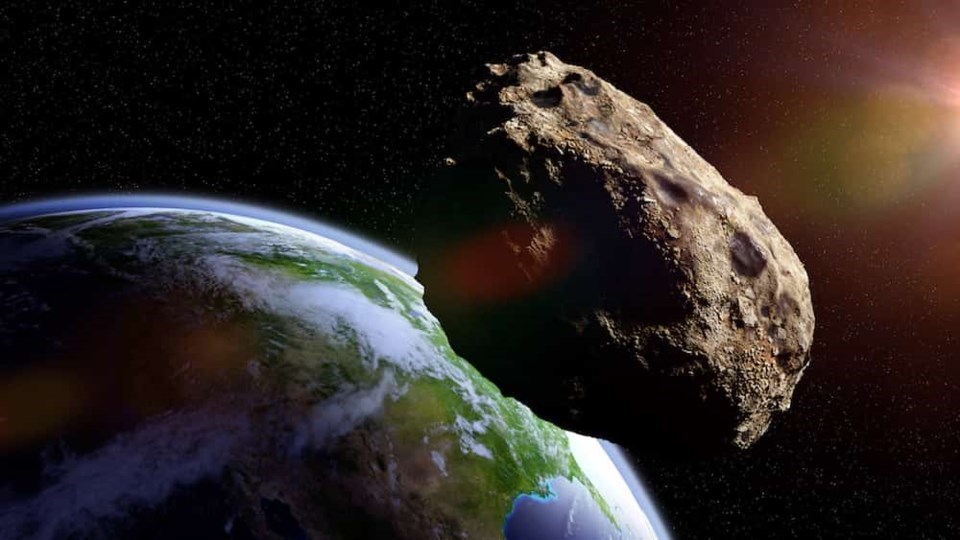If you've ever watched the movies Armageddon or Don't Look Up, you might have contemplated what would happen if a giant asteroid or comet was heading on a terrifying collision course with Earth.
While big-budget blockbusters tend to dramatize these scenarios, this type of existential threat could annihilate all of the life on our planet -- if it were to happen, of course.
Recently, an asteroid called 2022 AP7 made headlines because it appears quite big and its orbit could bring it dangerously close to Earth's path. Scientists classify these types of space rocks as "planet killers."
But just how worried should people be?
According to Marley Leacock, an astronomer at the H.R. MacMillan Space Centre, people don't need to worry about the attention-grabbing asteroid.
"The H.R. MacMillan as an institution isn't really following the news, and neither am I," she told Vancouver Is Awesome.
The reason why the astronomer isn't concerned has nothing to do with the science behind how asteroids and their impacts work, however.
"Determining asteroid impacts is not easy. It takes a lot of watching and gathering data to figure out the orbital properties of the object. Every time it is viewed, more information is gathered, which allows for models to be refined and tweaked," she explained.
"It is not uncommon for asteroids that once had a high impact risk to collide with Earth to have that risk go to zero after additional data collection."
What makes asteroid 2022 AP7 "potentially hazardous" is partially its brightness, which is indicative of its large size. The other is its minimum orbit intersection distance (MOID) with respect to Earth, which is the smallest distance that it will intersect Earth's orbit, Leacock described.
"If the MOID with respect to Earth is less than 0.05 au [the distance between Earth and the sun] and it has an absolute magnitude of 22.0 or less (this makes it brighter- magnitudes are odd) then it is potentially hazardous," she said.
"2022 AP7 has an MOID of 0.0475 au, and an absolute magnitude of 17.1."
What is a planet killer asteroid?
The term 'planet-killing' refers to an asteroid's size and NASA considers any larger than 1 km to 2 km to have global effects, added Leacock.
In a paper published Monday (Oct. 31) in The Astronomical Journal, the research team settled on an estimate of 1.5 km for asteroid 2022 AP7. They also classify the giant space rock as the "largest Potentially Hazardous Asteroid (PHA) discovered in about eight years"
While those figures sound alarming, Leacock says the asteroid currently has no chance of colliding with Earth.
"It does cross our orbit, but when it does, we are on the other side of the sun. Over time this will change and it will start to cross our orbit when we are closer, but this will be hundreds of years from now," she said.
"And even then, that number is not very precise. We don't know enough about the orbit of the asteroid. The paper bases the orbit on a 5-year observation arc, as [the researchers] found the asteroid in data from 2017 after they detected it in January 2022. Lots more data are needed for models to become more accurate when looking into the future."
Locals who want to learn more about risks associated with asteroids and comets can visit NASA's Center for Near Earth Object Studies (CNEOS). Leacock points out that the government space agency's impact monitoring system Sentry currently does not have 2022 AP7 listed on its Impact Risk Data table, which models orbits for the next 100 years looking for possible impacts.
But some space rocks do make their way to Earth; they just aren't the ones that have the potential to wipe out life on Earth.
Ruth Hamilton, a resident of Golden, B.C., had a meteorite crash through her roof while she was sound asleep in October 2021. Thankfully, she wasn't injured.



